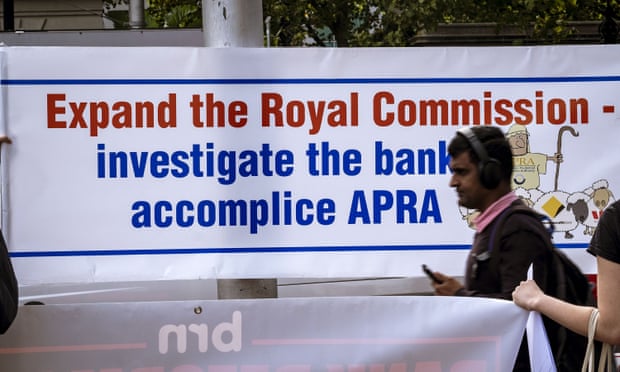By Eric Nnaji [update] FILE PHOTO: Seattle Seahawks owner Paul Allen on the field before Super Bowl XLVIII against the Denver Broncos at MetLife Stadium in East Rutherford, New Jersey, U.S., February 2, 2014. Mandatory Credit: Mark J. Rebilas/File Photo. Microsoft Corp co-founder Paul Allen, the man who persuaded school-friend Bill Gates to drop out of Harvard to start what became the world’s biggest software company, died on Monday at the age of 65, his family said. Allen left Microsoft in 1983, before the company became a corporate juggernaut, following a dispute with Gates, but his share of their original partnership allowed him to spend the rest of his life and billions of dollars on yachts, art, rock music, sports teams, brain research and real estate. Allen died from complications of non-Hodgkin’s lymphoma, a type of cancer, the Allen family said in a statement. In early October, Allen had revealed he was being treated for the non-Hodgkin’s lymphoma, ...
Katharine Murphy
So instead of being too tricky by half, and suggesting now it is marvellous we are having the inquiry, and signalling you are, of course, open to extending it, while conveniently omitting the back story – the government needs to eat crow with some humility and sincerity.
In professional politics, admitting you were wrong is the hardest thing to do, particularly in an age where the public space of politics is consumed by ad hominem insults and vicious put-downs, lobbed either by the protagonists themselves, or a chorus of onlookers chattering ceaselessly 24/7.
That’s the context sitting behind the financial services inquiry.
Admitting you were wrong is hard, but there are
bigger issues at stake now: namely whether voters can still trust institutions.
Protesters rally outside the banking royal
commission hearing in Melbourne. Photograph: Luis Ascui/EPA
Given this isn’t complicated, here’s what should
happen now.
The Turnbull government, if it has any sense of
right and wrong, and any remaining shred of political judgment, should say to
voters, without dissembling or weasel words: “Sorry, we got this one badly
wrong.”
The collective mea culpa needs to be short and
sharp, given we were all here and we all saw what happened.
We all saw the Turnbull government resist consistent
calls for a banking royal commission after a string of damaging reports about
scandals in the financial services industry. We saw that stonewalling play out
for months.
Then we saw the government forced into having an
inquiry because the prime minister and the treasurer got
overrun by restive Nationals MPs while their then leader, Barnaby
Joyce, was
trying to clean up his self-created mess on dual citizenship in the
New England byelection.
We saw Malcolm Turnbull and Scott Morrison produce
an inquiry through gritted teeth in response to Nationals running
down the executive in full public view.
The banking royal commission has produced, in its
opening stages, ample
evidence to justify its own existence, and to validate all the news
reporting and the political advocacy from Labor, the Greens and others that
preceded its establishment.
So instead of being too tricky by half, and suggesting now it is marvellous we are having the inquiry, and signalling you are, of course, open to extending it, while conveniently omitting the back story – the government needs to eat crow with some humility and sincerity.
It is, frankly, ridiculous for senior government
figures to demand financial institutions justify their conduct while declining
to explain their own.
In professional politics, admitting you were wrong is the hardest thing to do, particularly in an age where the public space of politics is consumed by ad hominem insults and vicious put-downs, lobbed either by the protagonists themselves, or a chorus of onlookers chattering ceaselessly 24/7.
The government won’t want to hand that victory to
Labor. It won’t want to confess fallibility before the voting public,
preferring to project the sense that the emperor is still clothed.
But there are bigger issues at stake here than being
seen to capitulate, or losing a 24-hour news cycle.
What’s in play right now in Australia is trust:
whether voters can trust institutions, both private and public.
What this royal commission does is underscore the
deep concerns Australian voters have about the health of our institutions, and
whether or not our governments have the right priorities and focus.
Any politician paying attention right now will tell
you that Australian voters are in a mood, worn down by the grim circus in
Canberra, by the sense the country is drifting and political
leadership in Canberra is little more than a ghost ship; and by the nagging
sense that there was an age of prosperity and tranquility that has now been
replaced by an age of contingency and shrieking.
When many voters looks at the cadre of leaders in
this country they see politicians indulging intrigues at the expense of
meaningful progress, and businesses entirely out for themselves.
That’s the context sitting behind the financial services inquiry.
It is not happening in a vacuum.
What’s in play right now is trust, and collective
faith in representatives politics – and without it, governments have nothing.


Comments
Post a Comment